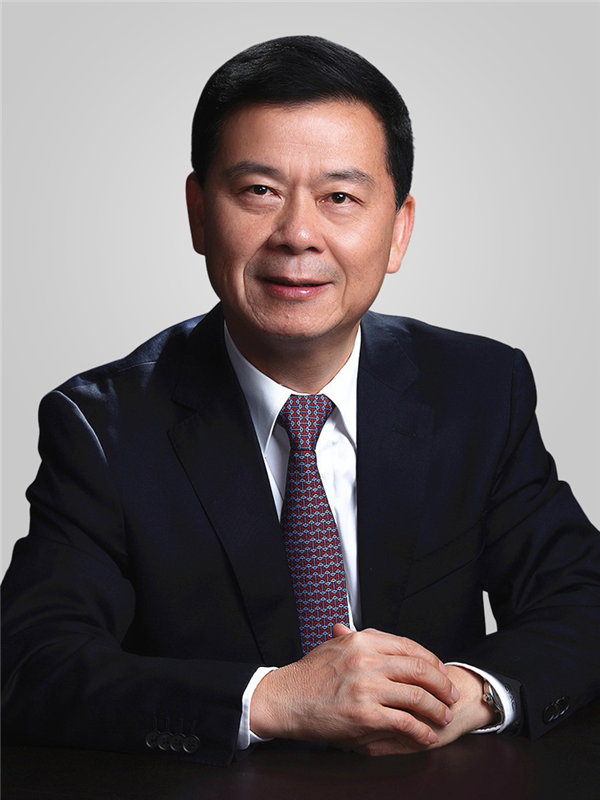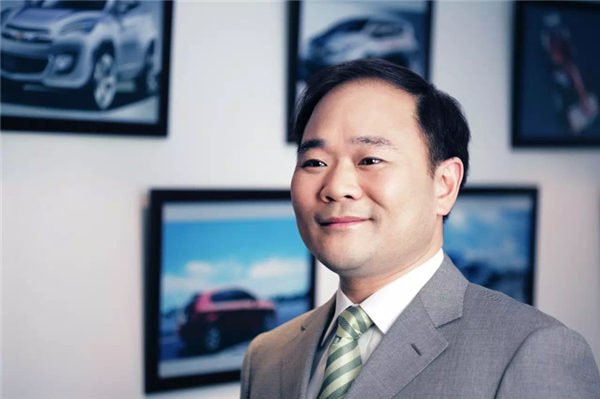Two sessions: hot topics of auto industry
Beijing (Gasgoo)- China will encourage stable increase in the consumption of automobiles, remove unreasonable restrictions on deals of used vehicles and make parking lots, charging stations and battery swapping stations much more available to the public, according to the annual work report delivered during the annual two sessions of this year. Besides, the country will also accelerate building power battery recycling system.
Apart from the report, executives from the auto industry also filed a slew of proposals, covering automotive chip, intelligent and connected vehicle, and carbon neutrality.
About auto chips
Since the end of last year, the automotive chip shortage has forced global automakers to cut productions. Undoubtedly, it is of great importance for the development of China’s auto industry to ensure the supply of automotive semiconductors.

Zeng Qinghong; photo credit: GAC Group
Zeng Qinghong, chairman of GAC Group and NPC deputy, pointed out that at present, domestic investment in chip industry is relatively conservative, and the lack of relevant standards and verification system also limits the development of auto semiconductor industry.
Therefore, the chairman suggests that the national government should further strengthen its support for automotive electronics industry, work out special incentive measures, accelerate the development of standard systems and the implementation of industrial roadmaps for key electronic parts. And more social capital should be invested in chips and key automotive electronic parts.

Chen Hong; photo credit: SAIC Motor
Chen Hong, chairman of SAIC Motor and NPC deputy, said in a proposal that two-step strategy is needed for automotive chips. The first step is to be driven by automakers and system suppliers, which are expected to help major chip companies to realize local production of those chips with lower technology threshold. And the second step will be driven by chip suppliers to form internal dynamic mechanism and strive for local production of chips with higher technology threshold.
According to Yin Tongyue, chairman of Chery Holding Group and NPC deputy, the largest auto market needs to formulate the development outline for local automotive chip industry, clarify the localization target, enhance the supply chain and the IPR protection to support the segment’s development.
About intelligent and connected vehicles
The past several years saw rapid development of intelligent and connected vehicles (ICV) as technologies have made great progress in sensing, algorithm, 5G and V2X.
Current traffic regulations are based on the fact that vehicles are driven by human beings, so intelligent vehicles face certain legitimate plight. As to the road test of autonomous vehicles, there is no guidance for operation and no uniform mechanism in test license among cities, resulting longer test time and higher cost. Due to the limitation of road infrastructure and the low application rate of V2X equipment, intelligent and connected vehicles can only focus on single vehicle’s intelligence for the time being while the connectivity makes slow progress.
Zeng Qinghong said that the government should make relevant adjustments in infrastructure construction, laws and regulations, R&D and testing, technology advancement and road construction to achieve targets in NEV and ICV segments.

Wang Fengying; Photo credit: Great Wall Motor
Wang Fengying, president of Great Wall Motor and NPC deputy, put forward a similar proposal that a comprehensive coordination mechanism should be formed quickly and the government should quicken the formulation of relevant regulations.
As to the end use of intelligent vehicles, Robin Li, chairman and CEO of Baidu, calls for greater governmental endeavors to promote the commercial use of self-driving cars and accelerate the application of smart transport system.
Li said both the government and the industry should make major efforts to develop low-carbon transportation powered by such new technologies as AI and 5G, so as to further facilitate people in travelling and contribute to the coordination between peaking carbon dioxide emissions and achieving high-quality economic growth.
To realize the goal, he suggests that the policy innovation should be further promoted on the national level, in a bid to pave the way for legalizing the large-scale commercial use of autonomous driving products and technologies.
About carbon neutrality
China aims to bring its carbon emission to peak before 2030 and become carbon neutral before 2060. In order to fulfill the promise, the government has made it a key mission for 2021 to effectively perform work for peak carbon and carbon neutrality. Undoubtedly, that’s a target that players in auto industry strive to achieve.
Zeng Yuqun, chairman of CATL and CPPCC member, expects that electrochemical energy storage will be of great importance to the national energy system. But there are still some problems, such as lacking of systematic study and top-level design, immature market system. The large-scale application of the technology needs the improvement in energy storage policy and the market environment.
Thus, he suggests enhancing top-level design, accelerating reforming in electricity market, improving energy storage system and encouraging production of electricity from renewable sources.
As to the development of fuel cell segment, Wang Fengying said that in order to support scale application of fuel cell electric vehicles, China should solve various problems facing the segment, such as unclear industrial strategy, absent management of refueling stations, incompetence in the supply of key materials and components and high cost of manufacturing fuel cell vehicles. Chen Hong also proposes to accelerate the formulation of supporting policies for fuel cell electric vehicle segment.

Li Shufu; photo credit: Geely
Li Shufu, chairman of Geely Holding Group and NPC deputy, said regulation limits on electrification of trucks should be removed as emissions of these vehicles accounted for 56% of road transportation emissions while only 12% vehicles on the road were commercial vehicles.
What’s more, he also put forward relevant suggestions for the railway transportation of electric vehicles (EV). Thanks to the expansion of overseas EV market, China-made EVs are expected to see more opportunities overseas, and thus cross-border transportation becomes increasingly important. But transportation by railway of lithium-ion batteries is banned by current regulations and other transportation means will produce more carbon emissions.
So the chairman suggest that current regulations should be adjusted in accordance with EV’s distinct features and that relevant industry bodies and government departments should discuss and formulate safety standards and transportation rules. And special freight trains are needed for EVs.
Gasgoo not only offers timely news and profound insight about China auto industry, but also help with business connection and expansion for suppliers and purchasers via multiple channels and methods. Buyer service:buyer-support@gasgoo.comSeller Service:seller-support@gasgoo.com







